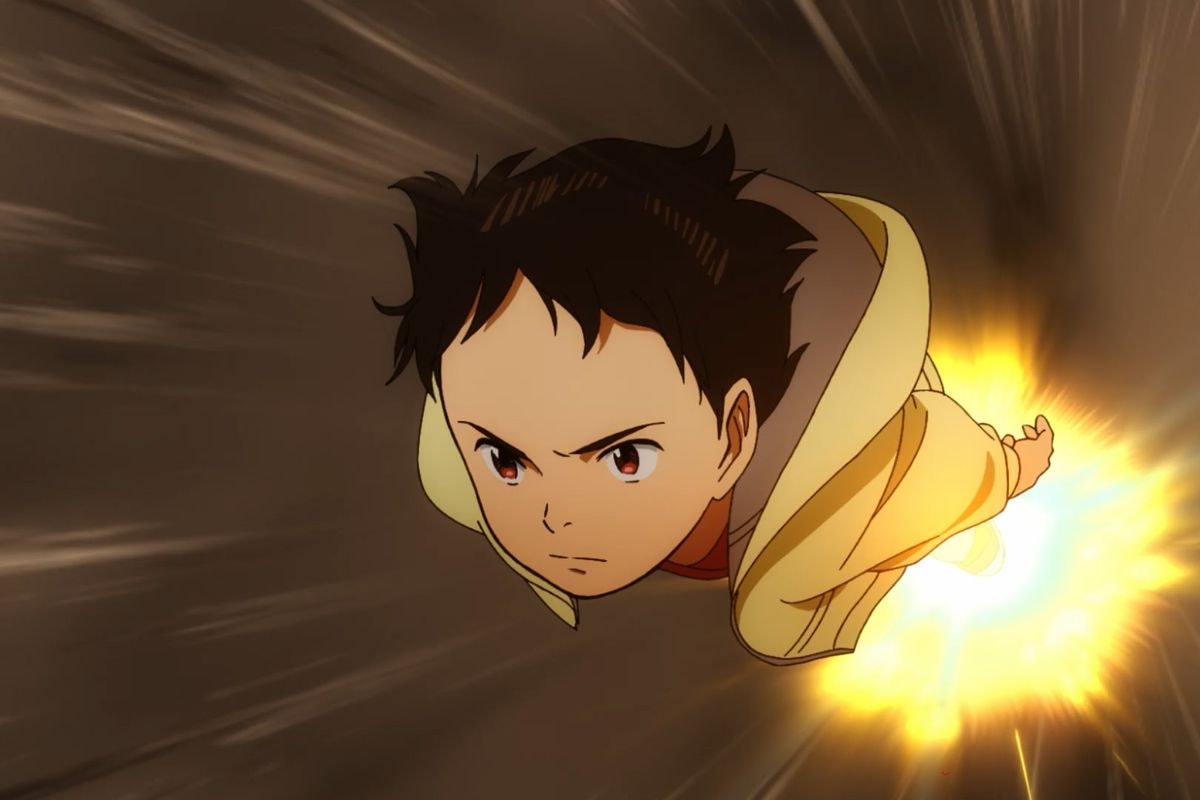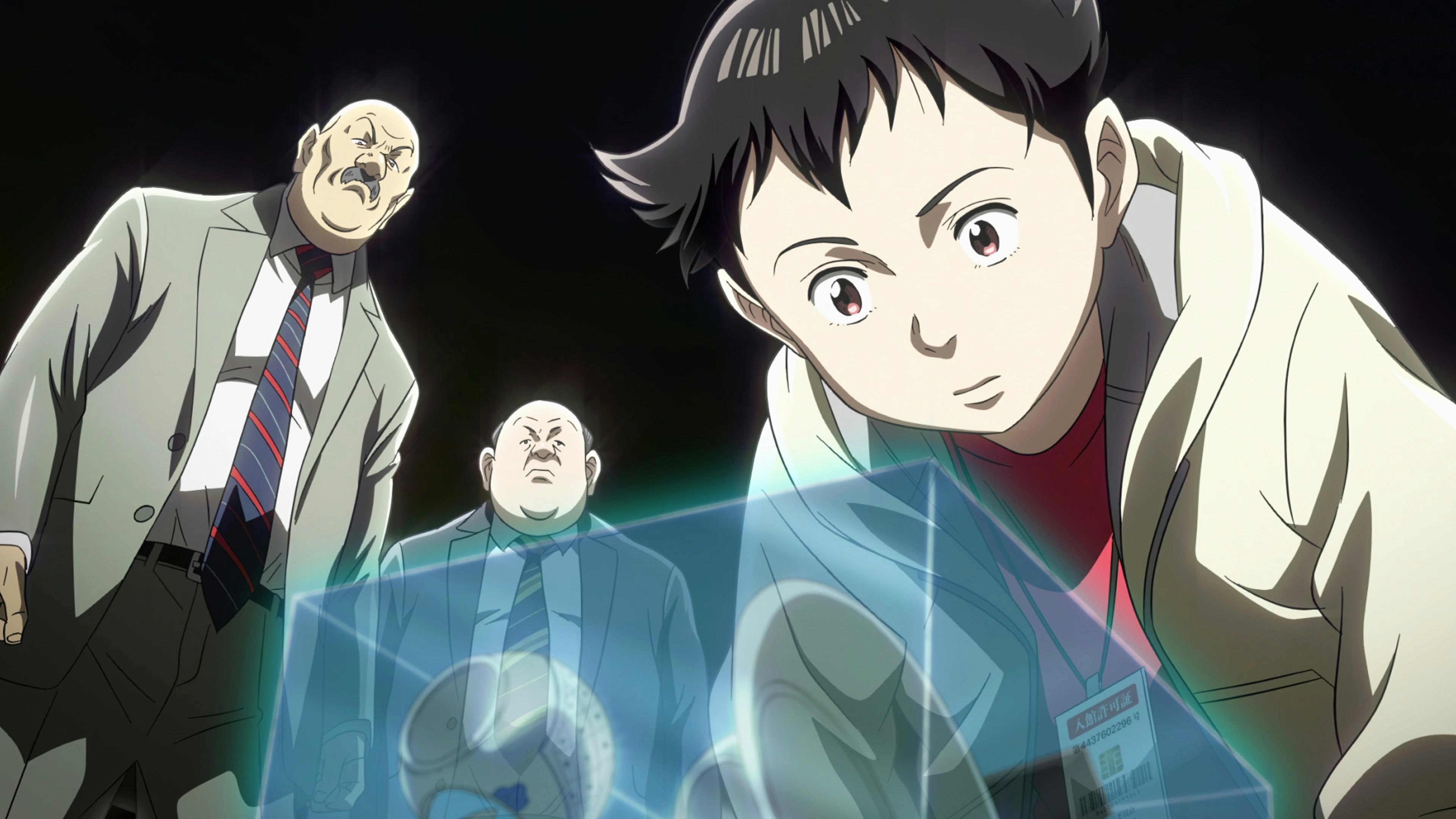
If Pluto could be compared to any other major work, its closest peer would likely be Alan Moore’s seminal graphic novel Watchmen. Both are loose adaptations of existing characters and universes (Moore was steered away from his original intention of gathering a band of old comic heroes, while Pluto’s creator Naoki Urasawa’s story is a take on his beloved Astro Boy.) Both are consumed by a murder mystery and both tell interweaving narratives about a society struggling to adjust to momentous shifts in cultural norms. Both work to humanize concepts that often seem deeply artificial and both are extremely critically acclaimed.
That said, fans of Watchmen will have to wait until 2024 for the chance at an animated series based on it. But devotees of Pluto need wait no longer — an anime version hit Netflix on October 26 and it’s a resounding triumph in all aspects. The series carefully handles what could be a clumsy, heavy-handed mess and delivers a well-paced meditation on violence, war, empathy and humanity. Alongside masterworks like Devilman Crybaby and Beastars, it’s one of the best Netflix exclusive anime series yet.
With direction by Toshio Kawaguchi (an accomplished journeyman in the industry if there ever was one, with credits that run from Akira to Studio Ghibli to Neon Genesis Evangelion), Pluto tells the story of a robot detective named Gesicht and the wave of murders of robots and humans that he’s tasked with investigating. Gesicht’s work leads him to discern that a killer is targeting both the most advanced robots in the world and the people involved with supporting International Robot Laws. However, whatever might seem clear cut in the beginning reveal themselves to be forces beyond the protagonist’s comprehension.
Pluto is littered with homages and nods — one can find bits not only from Astro Boy but the works of Isaac Asimov and Philip K. Dick and even Pinnochio and Silence of the Lambs. Its emotional cohesion renders it to be much more than an onslaught of ideas, though. At the forefront is the role of robots in the world and the ethics involved in their treatment, but it’s all wrapped up in a much wider concern about what it truly means to be conscious and if the pre-conceived barriers between humans and robots are even there at all. And in an age where arguments about artificial intelligence and the differences of algorithmic service and actual creation are ongoing, Pluto feels more than a little prescient.

Driven by a sense of urgency typical of police procedurals, Pluto also doesn’t skimp out on the atmosphere, which purposefully blurs the line between a shiny steel utopia and the eager warmth of relationships. These aspects are most obvious in the second half of the first episode, which revolves around a famous blind pianist learning to connect with his robot butler. The former, scarred by a traumatic childhood and left apathetic to the world, is given a chance to renew his own spirit thanks to the curiosity of the latter, despite the robot’s own memories of haunting combat.
The culmination of their story is beautiful, but Pluto rarely settles on the easy answer of, “It’s actually the robots that teach mankind to be more human” or vice versa. Instead, we get multiple lessons in community and in the way lives integrate. This makes it all the more shattering when the series dives into its backstory of a war (one with more than a few callbacks to real-life wars waged for blatantly misguided purposes) and both robots and man are left grasping for their own answers as to how violence is allowed to exist on that scale and the ripple effect it has on the world forever after.

These themes are so powerful that their exploration eventually becomes far more interesting than any murder mystery, and as such, the eventual reveal doesn’t carry all that much weight. Like Watchmen, though, it’s less about “who” and more about “what” and “why” — what circumstances would create a rampage like this and why do we allow ourselves to continuously lean into it? The subject of robots falling prey to the instability of what’s often considered fallible human emotions is well-worn pop culture territory at the point, but, alongside things like Blade Runner, Pluto becomes a definitive work on it thanks to its inspired storytelling and deep well of pathos.
Overall, if you’re a fan of Naoki Urasawa (the anime Monster, based on another of his fantastic series, is also on Netflix) or science fiction, Pluto is more than worth your time. It’s among the best anime of 2023, and absolutely does justice to one of manga’s greatest and most thought-provoking tales.







